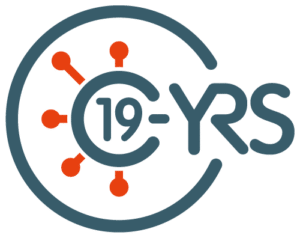

Psychometric analysis of the modified C19-YRSm in a prospective multicentre study
Published on the 3rd of January 2024 doi: 10.1101/2023.12.22.23300424
The abstract of the article and summary points can be read here, but for the full article, please follow any of the links above.
Abstract:
Background: Long COVID is a novel multisystem clinical syndrome affecting millions of individuals worldwide. The modified COVID-19 Yorkshire Rehabilitation Scale (C19-YRSm) is a condition-specific patient-reported outcome measure designed for assessment and monitoring of people with Long COVID (LC).
Objectives: To evaluate the psychometric properties of the C19-YRSm in a prospective sample of people with Long COVID.
Methods 1314 patients attending UK specialist Long COVID clinics completed C19-YRSm and EQ-5D-5L longitudinally. Scale characteristics were derived for C19-YRSm subscales (Symptom Severity, SS; Functional Disability, FD; and Overall Health, OH) and internal consistency (Cronbach’s alpha). Convergent validity was assessed using the FACIT-Fatigue scale. Known groups validity was assessed for the Other Symptoms (OS) subscale as tertiles, hospitalisation and intensive care admission. Responsiveness and test-retest reliability was evaluated for C19-YRSm subscales and EQ-5D-5L. The minimal important difference (MID) and minimal clinically important difference (MCID) were estimated. Confirmatory factor analysis was applied to determine the instrument’s two-factor structure.
Results: C19-YRSm demonstrated good scale characteristic properties. Item-total correlations were between 0.37 to 0.65 (for SS and FD), with good internal reliability (Cronbach’s alphas >0.8). Item correlations between subscales ranged between 0.46 to 0.72. Convergent validity with FACIT was good (−0.46 to −0.62). The three subscales discriminated between different levels of symptom burden (p<0.001), and between patients admitted to hospital and intensive care. There was moderate responsiveness for the three subscales ranging from 0.22 (OH) to 0.50 (SS) and was greater than the EQ-5D-5L. Test-retest reliability was good for both SS 0.86 and FD 0.78. MID was 2 for SS, 2 for FD, and 1 for OH; MCID was 4 for both the SS and FD. The factor analysis supported the two-factor SS and FD structure.
Conclusions: The C19-YRSm is a condition-specific, reliable, valid, and responsive patient-reported outcome measure for Long COVID.
What is already known on this topic: Long Covid or Post-COVID-19 syndrome is a multisystem, fluctuating condition. C19-YRSm is literature’s first condition-specific patient reported outcome measure which needed validation in a large population sample.
What this study adds: C19-YRSm is a valid, reliable, responsive and easy to administer measure which is able to show clinically meaningful change in the status of the condition in people living with Long Covid.
How this study might affect research, practice or policy: C19-YRSm can be used in clinical and research settings to reliably capture the condition trajectory and the effect of interventions and also help inform clinical policy.
Authors:
- Adam B. Smith
- Darren C. Greenwood
- Mike Horton
- Thomas Osbourne
- Madeline Goodwin
- Román Rocha Lawrence
- Darren Wince
- Ruadiridh Milne
- LOCOMOTION Consortium
- Manoj Sivan
